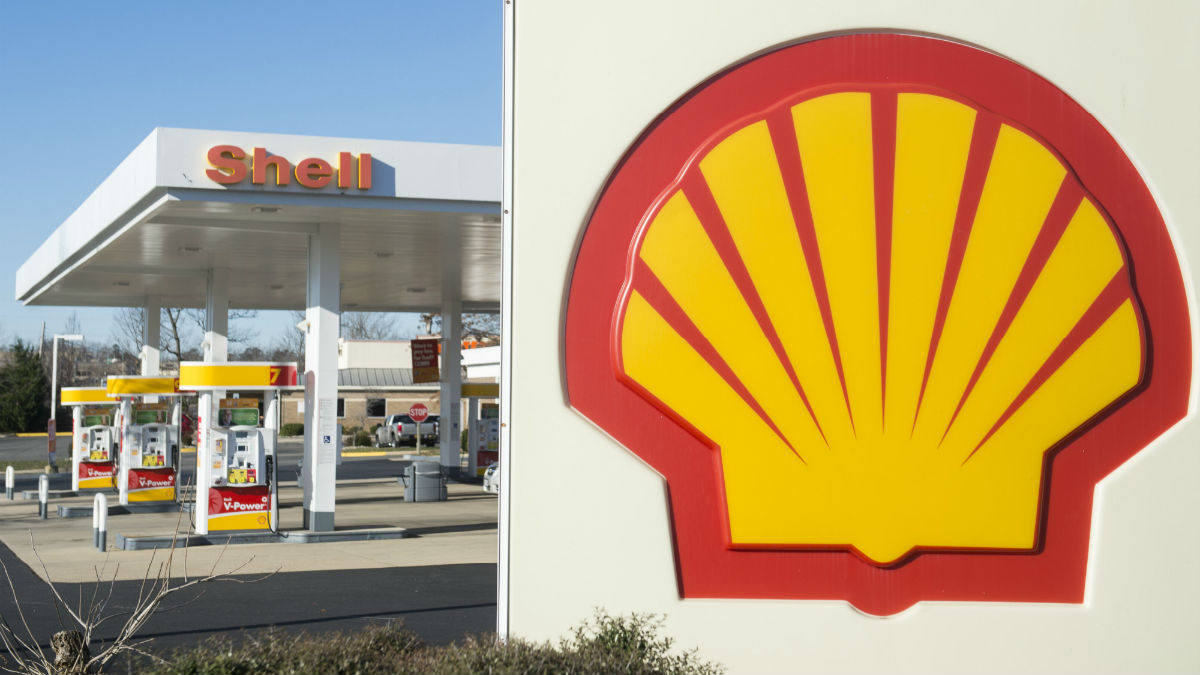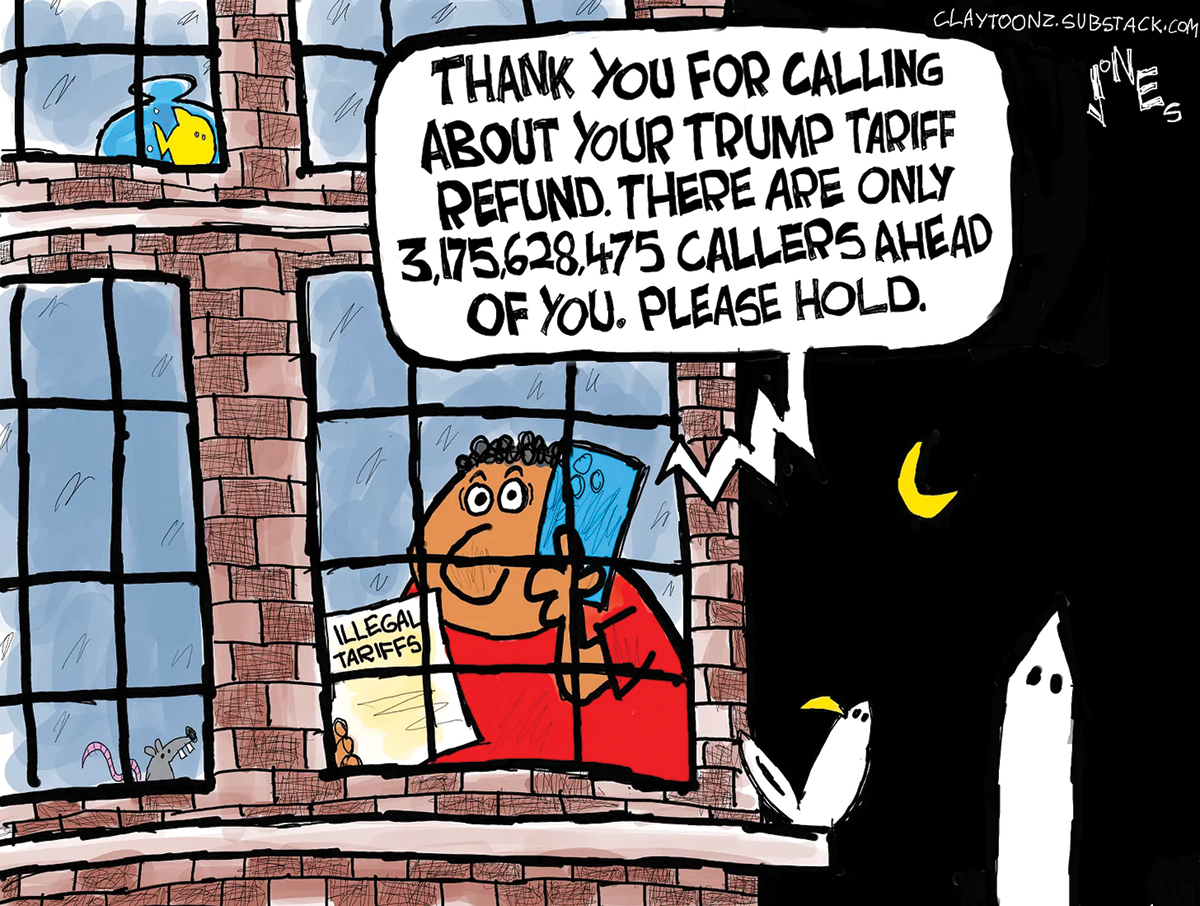Shell shareholders back $50bn BG takeover
Green light despite some opposing deal that was struck when the oil price was much higher

A free daily email with the biggest news stories of the day – and the best features from TheWeek.com
You are now subscribed
Your newsletter sign-up was successful
Shell's shareholders have given the go-ahead for a $50bn (£35bn) takeover of rival BG group, despite fears over the continuing drop in the price of oil.
Meeting in The Hague on Wednesday, 83 per cent of investors voted in favour of the plans, which will create Britain's largest public company.
While the deal is still to be ratified by BG shareholders later today, the vote is seen as the final major hurdle in a "nine-month quest to clear global regulatory hurdles and win over investors, who - in the face of plunging oil prices - have questioned whether Shell's offer was overpriced", says the Daily Telegraph.
The Week
Escape your echo chamber. Get the facts behind the news, plus analysis from multiple perspectives.

Sign up for The Week's Free Newsletters
From our morning news briefing to a weekly Good News Newsletter, get the best of The Week delivered directly to your inbox.
From our morning news briefing to a weekly Good News Newsletter, get the best of The Week delivered directly to your inbox.
When the deal was originally signed, the price of oil was well above $50 a barrel and the companies' shares valued to tie-up at $70bn. But both have tumbled since then.
The vote was not without incident: major investor Standard Life vowed opposed the tie-up, calling it "value destructive" for shareholders, and many privately wondered whether the takeover would be renegotiated in light of record low oil prices.
Some analysts, however, have said the tie-up is strategically sound as it boosts output at a time when all oil majors are retrenching from investment into new wells.
"Shell is clearly not exempt from the squeeze in earnings and cash flow faced by the industry, but with the acquired assets it is likely to have more levers than most to pull through the downturn," said Barclays in a note.
A free daily email with the biggest news stories of the day – and the best features from TheWeek.com
In the run-up to the deal, expected to be formalised in mid-February, Shell announced it would slash costs and investment by up to $15bn (£10.4bn) while axing 10,300 jobs over the next two years. This came after it reported fourth-quarter profits had more than halved.
Shell profits nosedive as it braces for crucial merger vote
20 January
Royal Dutch Shell has revealed fresh evidence of the painful toll the prolonged oil price slump is taking on its profits, as the company prepares for a key vote on its proposed merger with BG Group.
In a trading update this morning, the oil major reported fourth-quarter profits had dived from $4.2bn (£2.96bn) last year to at most $1.9bn and as low as $1.6bn. This follows a shock loss for the third quarter of the year and will contribute to a fall in full-year profits from $19bn in 2014 to between $10.7bn and $10.4bn.
Shell had previously published guidance that its 2015 earnings would be around $10.9bn. In the wake of the downgrade, its shares fell 5.5 per cent to 1,294p in London this morning.
Bosses said they had published the impromptu update as the company prepares to face shareholders next week over its proposed $60bn tie-up with sector rival BG Group. It needs to garner 50 per cent support for the deal to proceed after having received all of the necessary regulatory clearances, something that is likely but not a foregone conclusion.
At the time of the deal being announced last year, oil was trading at around $55 a barrel, the BBC notes, but it has fallen sharply to around $28. Standard Life, a key investor in Shell, said earlier this month that the price needed to be $60 a barrel for the takeover to make financial sense.
However, David Hunter, an energy industry analyst with Schneider Electric, said the deal was likely to be voted through. BG, which is currently seeing increasing production from its oil fields, would add useful "diversification" for Shell at a time when it is broadly retrenching to protect investor payouts, he added.
This echoes analysts who have said the deal is strategically sound because it helps Shell to increase overall production without having to undertake increasingly costly exploration and new drilling. BG's own results, also published today, showed output had increased 16 per cent year-on-year.
Shell confirmed today that it had reduced capital spending by 20 per cent in 2015, boosted asset sales by the same margin and trimmed $4bn from running costs, primarily through staff cuts. It reckons a combination of extracting synergies and boosting production will position it for the eventual oil price recovery and says the deal is one of the "bold, strategic moves [that] shape our industry".
New: try our free iPhone app, The WeekDay, for all the news that matters and nothing more. Click here for twice-daily digests distilled from the best of the British and international media
-
 Mexico kills drug lord El Mencho, sparking chaos
Mexico kills drug lord El Mencho, sparking chaosSpeed Read Cartel members responded with a wave of retaliatory violence across the country
-
 Trump’s tariff loss at Supreme Court roils trade
Trump’s tariff loss at Supreme Court roils tradeSpeed Read The court ruled that President Donald Trump’s most sweeping tariffs were unlawful
-
 Political cartoons for February 23
Political cartoons for February 23Cartoons Monday’s political cartoons include tariff refunds, Epstein Island visits, and more
-
 London Stock Exchange's mass exodus
London Stock Exchange's mass exodusThe Explainer The UK's stock market is shrinking at its fastest rate since 2010 with companies flocking to US and Europe
-
 How might the Israel-Hamas war affect the global economy?
How might the Israel-Hamas war affect the global economy?Today's Big Question Regional escalation could send oil prices and inflation sky-high, sparking a worldwide recession
-
 Recent mega-mergers could signal a turning point for the US oil industry
Recent mega-mergers could signal a turning point for the US oil industryTalking Point Both Chevron and Exxon have recently spent billions to acquire smaller oil companies
-
 Has Saudi Arabia lost control of oil prices?
Has Saudi Arabia lost control of oil prices?Today's Big Question Kingdom goes it alone to cut production, risking tension with US and reigniting cooling inflation in Europe
-
 US angered by Opec+ oil cut
US angered by Opec+ oil cutSpeed Read Energy prices to rise further as producers slash supply by two million barrels a day
-
 Labour shortages: the ‘most urgent problem’ facing the UK economy right now
Labour shortages: the ‘most urgent problem’ facing the UK economy right nowSpeed Read Britain is currently in the grip of an ‘employment crisis’
-
 Will the energy war hurt Europe more than Russia?
Will the energy war hurt Europe more than Russia?Speed Read European Commission proposes a total ban on Russian oil
-
 Will Elon Musk manage to take over Twitter?
Will Elon Musk manage to take over Twitter?Speed Read The world’s richest man has launched a hostile takeover bid worth $43bn